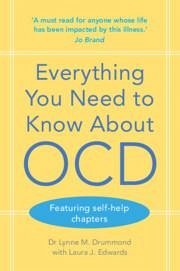
Everything You Need to Know About OCD

PAYBACK Punkte
6 °P sammeln!
Do you ever find yourself overwhelmed by troublesome and persistent thoughts that make you feel anxious? Do you feel an urge to wash your hands repeatedly, or check appliances over and over, to help ease your anxiety? Do you feel panicked about what might happen if you did not perform these rituals? You may be struggling with Obsessive Compulsive Disorder (OCD). OCD is a common, yet distressing condition, but one that is responsive to modern treatments. Everything You Need to Know About OCD gives you a comprehensive insight in to this condition, how to spot symptoms of it in yourself or a love...
Do you ever find yourself overwhelmed by troublesome and persistent thoughts that make you feel anxious? Do you feel an urge to wash your hands repeatedly, or check appliances over and over, to help ease your anxiety? Do you feel panicked about what might happen if you did not perform these rituals? You may be struggling with Obsessive Compulsive Disorder (OCD). OCD is a common, yet distressing condition, but one that is responsive to modern treatments. Everything You Need to Know About OCD gives you a comprehensive insight in to this condition, how to spot symptoms of it in yourself or a loved one, and outlines the treatment options available. The book features self-help chapters that guide you through Graded Exposure therapy, a highly effective psychological treatment for OCD. These chapters will equip you with strategies to banish unwanted thoughts and help you regain control of your life.














